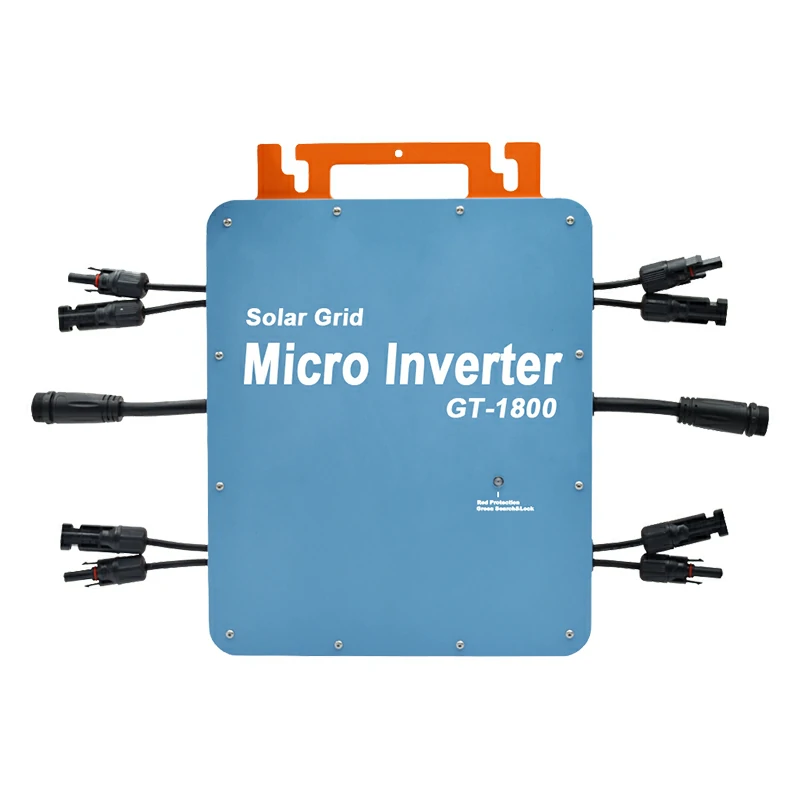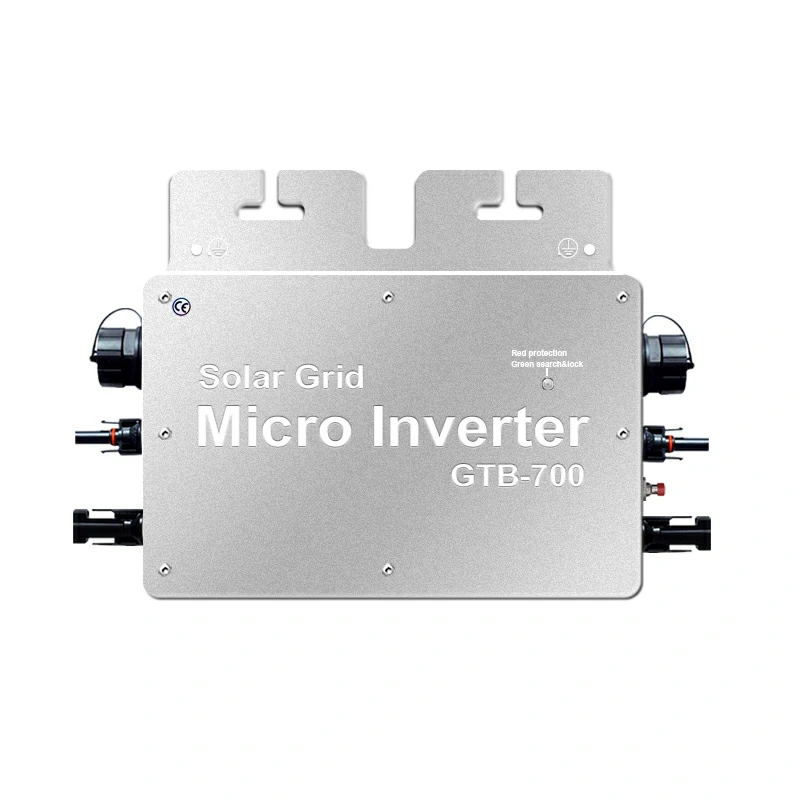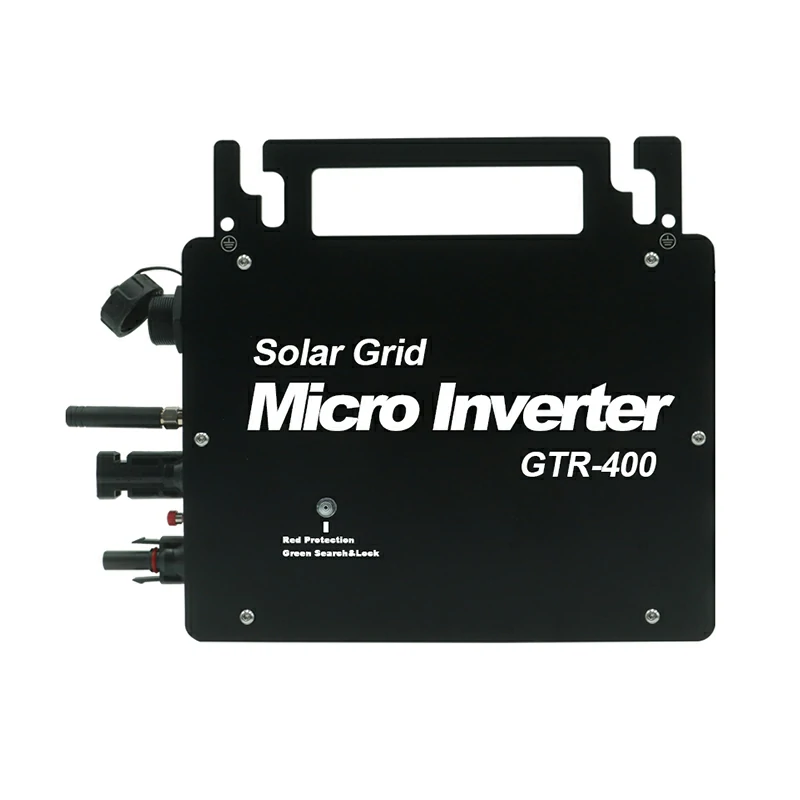Introduction
In the progressive world of solar energy, micro inverters have emerged as a game-changing technology, revolutionizing how solar power is harnessed and managed. As a Micro Inverter manufacturer, understanding the intricacies of these devices is crucial. This article delves into the safety and reliability aspects of micro inverters, highlighting why they are increasingly preferred in modern solar installations.
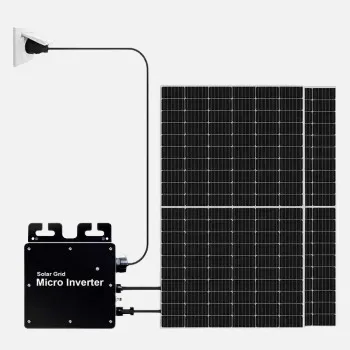
Understanding Micro Inverters
Micro inverters represent a significant technological advancement in solar energy systems:
- Functionality: Unlike traditional central or string inverters, micro inverters are installed at each solar panel. They convert the panel’s DC electricity into AC electricity at the source.
- Contrast with Central Inverters: Central inverters manage the conversion for the entire solar array, whereas micro inverters handle it panel-by-panel. This fundamental difference brings several benefits, particularly regarding safety and efficiency.
Safety Advantages of Micro Inverters
Reduced Fire Risk
- One of micro inverters’ most significant safety benefits is their ability to minimize fire hazards. By operating at a lower voltage, the risk of electrical fires, often associated with high-voltage DC wiring in central inverter systems, is substantially reduced.
- As Micro Inverters manufacturers, emphasizing this safety aspect is crucial, as it reassures customers about the safety of their solar installations.
Enhanced Electrical Safety
- Micro inverters contribute to overall electrical safety. The lower voltage level (AC) in micro inverter systems reduces the risk of electric shocks and electrocution, a concern with high-voltage DC in traditional central inverter systems.
- This safety feature is essential in residential settings, where the risk of electrical accidents must be minimal.
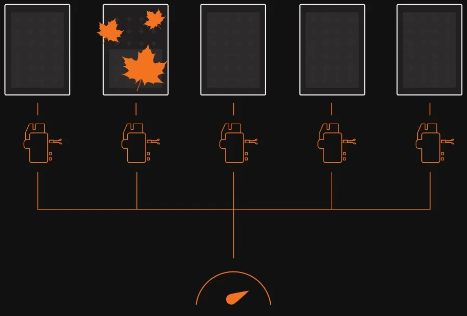
Reliability and Efficiency of Micro Inverters
Individual Panel Optimization
- Unlike central inverters, micro inverters optimize the output of each solar panel. This means that even if one panel is shaded or underperforming, the remaining panels continue to operate efficiently.
- This panel-level optimization ensures a more consistent and higher energy yield, making micro inverters a reliable choice for diverse environmental conditions.
Longer Lifespan and Durability
- Micro inverters are known for their longevity and robustness. Typically, they have a longer operational life compared to central inverters.
- Their resilience to environmental factors further underscores their reliability, an essential consideration for customers and micro-inverter manufacturers.
Customization and Flexibility
Scalability
- A standout feature of micro inverters is their scalability. This flexibility allows homeowners or businesses to start with a more minor system and expand over time. As a Micro Inverter manufacturer, offering scalable solutions is a critical advantage in meeting clients’ diverse needs.
- This modular approach makes it easier for users to customize their solar power systems based on their changing energy requirements or budgets.
Installation Flexibility
- Micro inverters offer greater flexibility in installation. Their compact size and independence from a central inverter allow for more creative and efficient panel placements, accommodating various roof types and orientations.
- This installation versatility is particularly beneficial in challenging spaces where traditional central inverters might not be feasible.
Cost-Benefit Analysis
Initial Investment vs. Long-Term Benefits
- While micro-inverters generally involve a higher initial investment compared to traditional inverters, the long-term benefits often justify the cost. These include increased energy production, fewer maintenance issues, and extended lifespan.
- As a Micro Inverter manufacturer, understanding and communicating the long-term energy savings and return on investment to potential clients is vital.
Choosing the Right Micro Inverter
Key Considerations
- Factors such as compatibility with solar panels, efficiency, warranty, and after-sales support should be considered when selecting a microinverter.
- Professional guidance from experienced micro-inverter manufacturers can assist customers in choosing the right product to meet their specific needs.
Conclusion
Micro inverters are not just an alternative to traditional solar inverters; they represent a significant advancement in solar technology, offering enhanced safety, reliability, and efficiency. For those in the market for solar solutions, considering micro inverters is a wise choice, backed by their numerous added advantages.
FAQs
Q: What is the typical lifespan of a micro inverter?
- A: Micro inverters typically have a 20-25-year lifespan, often outlasting the solar panels they are attached to.
Q: Can micro inverters work in off-grid solar systems?
- A: While primarily used in grid-tied systems, specific models of micro inverters can be adapted for off-grid use with additional equipment.
Q: How do micro inverters handle extreme weather conditions?
- A: Designed to be robust and durable, micro inverters can withstand various environmental conditions, from high temperatures to heavy snow loads.

